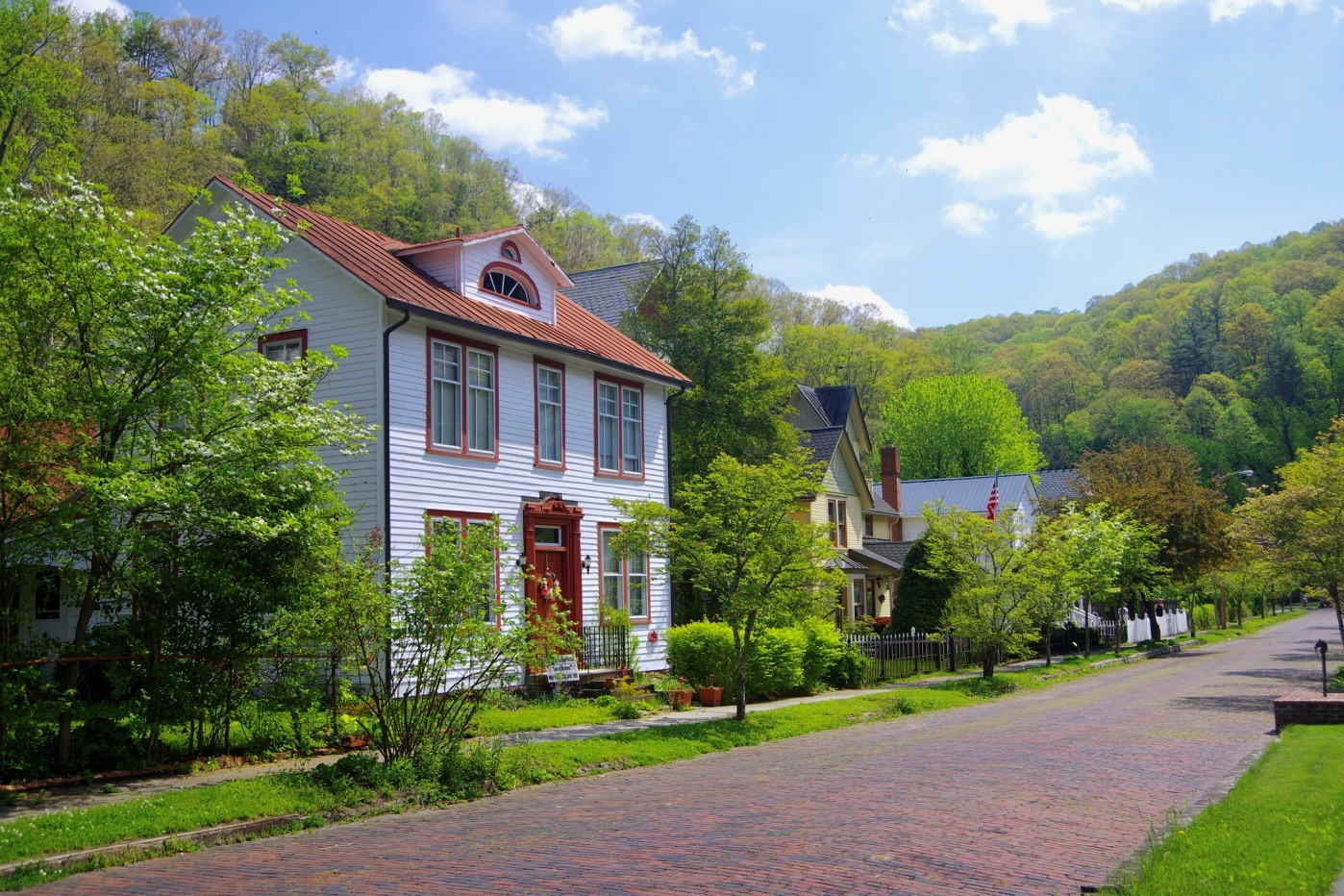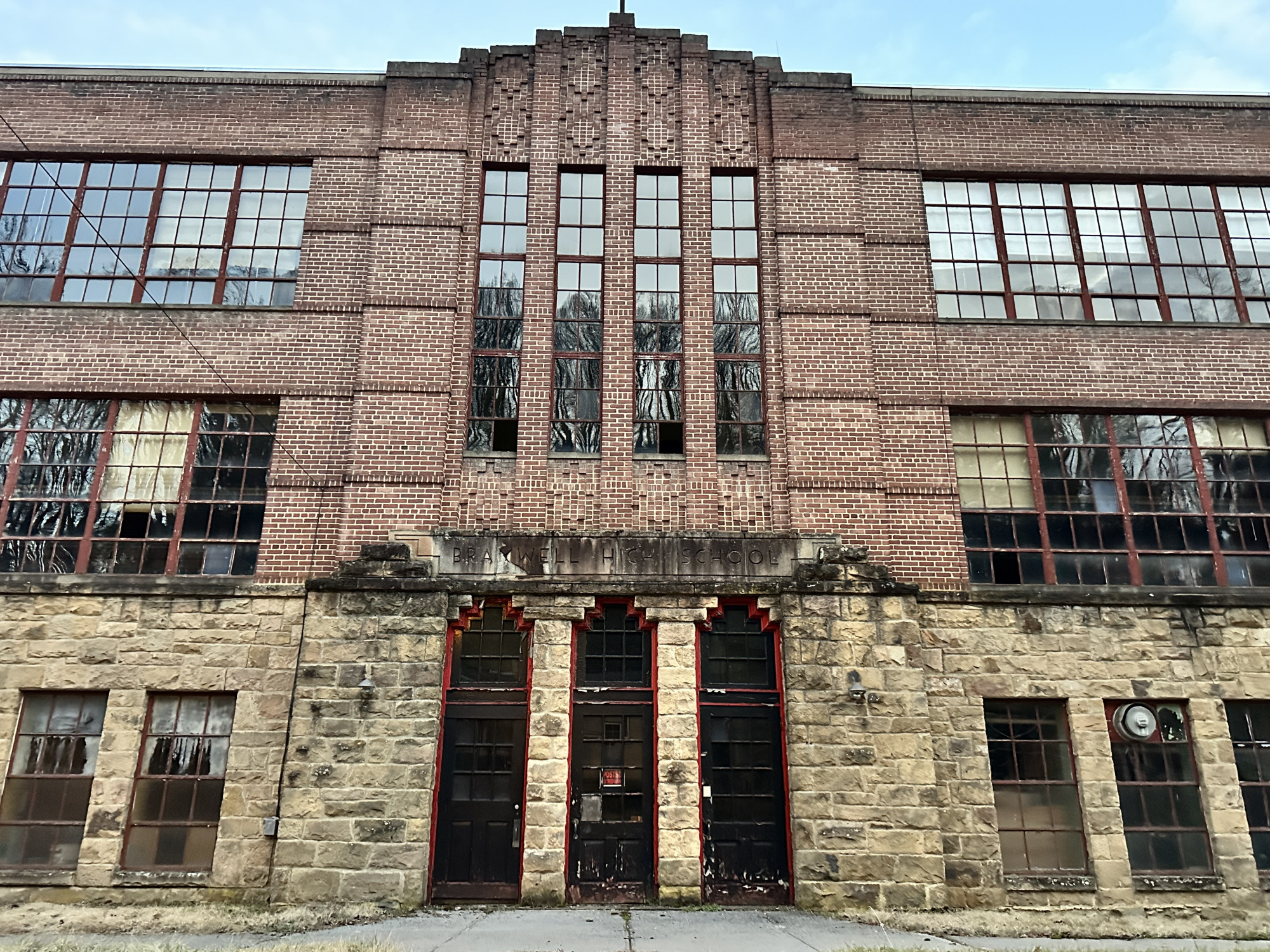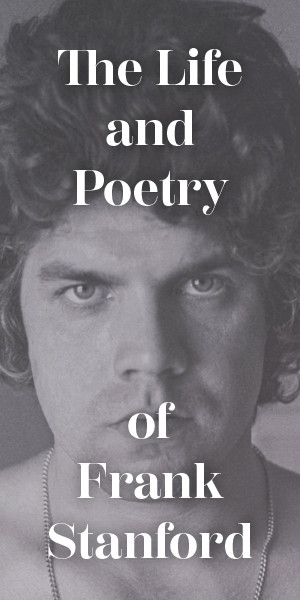Welcome to the Home of the Millionaires
The ex-mayor of Bramwell, West Virginia, recalls an almost-forgotten era
By Sarah Mullens

Bramwell, West Virginia. Photograph by Brian Stansberry and image courtesy of Wikimedia Commons, CC by 4.0.
During a period in the 1880s, Bramwell, West Virginia, had the highest per capita millionaire population of anywhere in the United States. A blue sign, written in swirly cursive, reads welcome to the town of bramwell home of the millionaires.
For almost 150 years, millionaires have been the town’s whole brand—the school mascot, even, was a millionaire. Think Monopoly man—monocle, penguin suit, swinging cane.
The first time I spoke to Lou Stoker, former mayor of Bramwell, I told her I wanted to come see the coal barons’ mansions. Since the town’s centennial in 1988, Lou had given tours in her capacity as lifelong resident and founding member of the Millionaire Garden Club, a historical tour company. She’d be happy to show me around, she said, “but we don’t call them barons, Sarah, we call them coal operators.”
From where I grew up in Putnam County, Bramwell sits two hours south on the Turnpike, then another half hour west on two-lane country roads, past stunning mountain views and other Appalachian clichés: single-wide trailers, a shuttered Rite Aid, an Exxon station with “the best hot dogs in town.” Half of the operating businesses in the towns near Bramwell are ATV-related—Rest & Ride Lodge, Buffalo Trail Cabins and Restaurant, Crazy Mountain Cycles. A single day on a Kawasaki can run as high as $750.
Bramwell—though surrounded by the detritus of West Virginia’s post-coal poverty—looks almost nothing like the surrounding towns. Built within a meander of the Bluestone River, Bramwell is tucked into a little valley. Its single block of storefronts sits on one side of Main Street. On the other side, cedar trees and a wrought iron fence divide town property from the private yard of the Edward Cooper house, a three-story mansion with a large turret and copper roof. Like the other mansions in town, Cooper’s was built on a coal fortune: Edward’s father John Cooper became one of the earliest coal “operators” in the region when he emigrated from England in the mid-nineteenth century.
Today, Bramwell’s a town of 265 people. The streets are quaint, quiet. Unlike neighboring Bluewell—with its gravel parking lots and corrugated steel buildings, despite its own 130-year history—Bramwell feels old.
When I first visited in 2023, I met Lou and her daughter, Dana Stoker Cochran, at the Corner Shop, which seemed to be the only business on Main Street open that day. Lou bought us chicken salad and we swapped old West Virginia lore. “There’s a rumor that in the heyday this was the first place in the States to carry the perfume Chanel No. 5,” Dana, a historian and professor, told me about the luncheonette where we sat. “But I haven’t been able to prove it yet.”
A few years earlier, I’d heard of Justus Collins, turn-of-the-century Bramwell resident, when I rented a place in Charleston around the corner from the red-brick mansion he’d built “as his business interests expanded.” With its large octagonal porch and turret, the Charleston house’s grandeur stood out in the neighborhood.
Famous for union-busting in the mines he managed, Collins hired what he called a “judicious mixture” of Black, immigrant, and local white workers. He built coal company stores in an octagonal shape so that even a whisper could be heard from the till at the store’s center. The emerging Unions attempted to pressure Collins into paying living wages and implementing safety measures. Instead, he employed a private security force and an embalmer.
Despite all of this, Collins’ entry on the crowd-sourced public history site Clio celebrates the tactics that “brought jobs to West Virginia and gave life to the growing coal industry that was at his feet.” I’ve heard a version of this narrative all my life, and of course, there’s truth here: the coal industry created jobs; Collins spearheaded that industry. Maybe the legacy of the man and his extraction could expand to accommodate this nuance. But there are no octagonal turrets to memorialize the bodies he embalmed. No front yard fountain to recall the true cost of his opulence.
After lunch, Lou, Dana, and I walked along the brick street. “Well,” Lou said with a little smirk, “Justus really was a baron.”
The Bramwell house, where he lived before moving to Charleston, is yellow with green trim and mostly two stories. One three-story tower rises from the center, where a stained-glass window and Juliette balcony draw the eye up, up, up. With its ornate woodwork and multiple bay windows, it’s a beautiful house. But, at three thousand square feet, it would hardly qualify as a mansion by today’s standards. This little street, no more than a quarter mile long, is a time capsule for the extreme wealth of a different era—no helipads or gated compounds. But, from where we stood on Main Street, we could see only large houses with verandas and the Bank of Bramwell, an imposing, 150-year-old structure made from native bluestone. We could see no hint of post-coal blight.
I’d come to Bramwell with a rather fixed point of view. As West Virginians, I might have said with a glass of red wine in hand, we should not be celebrating our own subjugation. But what had I expected? A shanty with an outhouse, like the one my grandfather lived in while his father worked in the mines, dropped beside a mansion for scale?
The visit betrayed that fixed point of view. Driving up the hill out of town, I thought only about Lou. How she’d lived through it all, seen coal’s brutality up close. Even still, she’d dedicated her life to showing people around these mansions, to preserving the town’s coal wealth residue.
In December 2024, I went down to Bramwell again. I found Lou reading the paper on a sunny side porch of a big house just a few down from Collins’s. She wore a colorful scarf over a Grinch sweatshirt, her hair in a short bob.
“I’m telling people my age now,” she said. The year prior, when I asked, she wouldn’t say. “I turned ninety last November and now everybody should know that I’ve been around for nine decades.”
Born in 1934, Lou came up in Bramwell during the Depression. Many of the town’s wealthy families lost their fortunes following the stock market crash of 1929, and when industry across the country slowed, the coal mines lowered production rates. To keep their family afloat, Lou’s father, Jon, left his job in the mines to run a billiards bar on Main Street. “Everybody liked my dad,” Lou said. “He talked to everyone, so people wanted to be there.” (How to get rich in a gold rush? Sell pickaxes. How to feed your family during a depression? Sell booze.)
“So that’s the Thirties,” Lou said. “Then in the Forties, everything had to do with WWII.” The war effort ran on coal, so the town entered another boom era. Jon went back to work in the mines. Lou’s brother Jack joined the Navy and served in the Pacific. A few months later, Jon died in a one-man mining accident.
By this time in the conversation, Dana had joined us on the porch. “Our family really is a matriarchy,” she said. With the $2000 payout she received for Jon’s death, Lou’s mother Sadie put a down payment on a house near the school. There, she raised six children alone. This tragedy is a much more common story in the history of Bramwell’s millionaires.

Courtesy of Author
When the sun went down and it got too chilly to stay on the porch, we moved inside.
“This house is great,” I said, looking up at the high, tin-tiled ceilings.
“Isn’t it?” Lou said, smiling. “It’s our project house.” We walked past the kitchen into a room filled with Bramwell memorabilia—old majorette uniforms, a blue and yellow bass drum. We sat down at a foldout table, and Lou offered me a Diet Coke.
“We ran this place as the Bluestone Inn Bed & Breakfast for years,” Dana said. “Tour buses would come in and we’d serve lunch and tea.” The tours centered around the “old Victorian and Tudor revival mansions,” with their “stained-glass windows, wide porches, turrets and gables.”
“The real question, Sarah,” Lou said, “is why I never left. My siblings are all around the world. And I stayed. Why?”
“You tell me, Lou,” I said, all three of us laughing. Lou paused before answering.
“I never wanted to be anywhere else.”
In her nine decades in Bramwell, Lou has—in addition to starting the Bed & Breakfast with her daughters—written, directed, and toured musicals about the town’s history; coached the Millionettes majorette team; started the Millionaire Garden Club; sponsored the Bluestone Yacht Club’s annual cardboard boat race; authored books and articles about Bramwell; scouted West Virginia locations for Hollywood films. And she served as mayor for sixteen years.
When I asked how her political life started, Lou said, “It’s never been political for me.”
“It’s never been political,” Dana said, turning to face me. “But when would you say your activism started? Mama, I’d call you an activist, even if you wouldn’t.”
“I guess it really started with trying to keep the school open,” Lou said.
In the ’80s, as mine production needs dropped and population declined, the Mercer County School Board raised the question of consolidation. They didn’t have the funds to keep small schools across the county open, so they’d have to decide which ones to shutter.
“I was at every school board meeting,” Lou said. “The school was at the heart of everything we did. Really the heart of the town. And we had support, but in the end it was 3-2.”
Bramwell High School graduated its last class in 1991. The elementary school closed in 2004. Bramwell kids are now bussed to another school in the district.
In 2007, a couple years after the fights over school consolidation ended, Lou was sworn in as mayor.
When, a few years into Lou’s mayorship, towns around Southern West Virginia bid to host the Hatfield-McCoy ATV trailhead, she fought to get that trailhead in Bramwell. “We knew there would be tradeoffs,” she said, but she felt she had to take the chance. The town had been slowly losing population. Businesses had closed without any reopening in their place.
“The day the trailhead opened, one of the council members came up to me and asked ‘What’s going on Lou? What are all these dignitaries doing here?’” she said, laughing. “All these dignitaries. There really were senators and all kinds of people. I’d told the council how big this was going to be, but I don’t think any of them could see how big.”
The Hatfield-McCoy Trail System is named, as boasts the West Virginia Department of Tourism website, for the “world famous Hatfield-McCoy Feuding” that claimed sixty lives across two families at the end of the 19th century. It’s as if the spilled Appalachian blood does little more than add local color to the “world-class ATV, UTV, and dirt bike trail riding.” The site advertises its proximity to “historical sites such as Blair Mountain and Matewan”—places where, in the 1920s, miners took up arms against the private security firms meant to keep them from unionizing. Firms hired by Justus Collins. “Strap on your helmet,” the website instructs.
Lou was right about the tradeoffs. While the trailhead did cause a kind of boom, trail tourism attracted “the new people,” who saw tourism-driven business opportunities in Bramwell’s historical designation. One of the out-of-state newcomers challenged Lou in the mayoral race in 2023.
“One of the big campaign promises,” Lou said, “was that they’d open up every street to the ATVs.” Even with the trailhead in Bramwell, the regulations Lou established had, thus far, kept the town from being overtaken by the buzzing of 750cc engines and hooping men in full-face helmets.
“So you’d just have ATVs riding over the cobblestones?” I asked.
“Well, you see they haven’t done it yet. They must realize how unpopular that really is.”
“Why Bramwell?” I asked. “There’s so much land around here.”
“I mean, there’s a certain prestige to Bramwell,” Dana said. “But the new people don’t care about the history. They come in and buy these houses. Without the history, the houses are just houses, I guess.”
When I came to Bramwell the first time, I’d expected for the houses to somehow apologize for their own garishness, to acknowledge their place in history. But Lou’s lifelong effort to preserve her hometown, in all its quaint opulence, made me see this history with more dimension. What is the Home of the Millionaires without the homes of the millionaires?
Even still, the ATV trailheads leave from Bramwell—where millionaires are venerated—and head up into Matewan and Blair Mountain, those bloody sites of worker solidarity and opposition.
Like all of Southern West Virginia, Mercer County has gone deep red in the wake of the MAGA movement. Much has been written about MAGA’s nostalgic undercurrent, its push to restore some better, if imagined, past. One might look at Lou, who’s spent her life preserving the legacy of people long dead, giving tours of Gilded Age mansions, and assume she’d fit within that framework of nostalgia. But that’s not how I see it. I see Lou enacting an older Appalachian tradition: love your homeplace, make the most of what you have.
Her opposition, though, did align itself with MAGA. Although the mayorship is nonpartisan, Lou and Dana suspect that in the 2023 mayoral race, campaign officials spread rumors that Lou was a Democrat. They promised to open the streets to ATVs, restoring a particular view of the past: a time without regulations, without checks on the destruction caused in the name of profit. In this community with no remaining schools, where the houses are just houses, they’d maim these quaint streets with the scream of ATVs.
Lou lost her race by seventeen votes.
“That’s enough talk about that,” Lou said, and she asked Dana to play a video on the projector. In the video, we watched the cardboard boat races and Garden Club parties. We watched Lou’s late husband, Denver, standing on the street flying a model airplane. Dana teared up when she saw her dad. In the video, we watched all Lou and her family had built here in Bramwell.
As I started packing up to leave, Lou said, “Get her a pen.” Dana jumped up and rummaged through a box across the room. “Only special people get these,” Lou said, wry.
Looking at Dana, she added, “Nathan asked me if I was running again the other day.”
“What’d you say?” Dana asked.
“I said, ‘Tell everybody I’m runnin’ again.’”
Dana handed me the pen as we hugged goodbye. It’s light turquoise and in white decorative font, it reads MGBA 2025. Make Bramwell Great Again.




